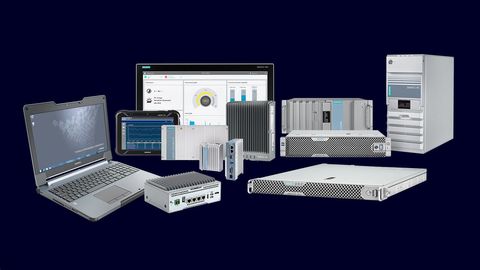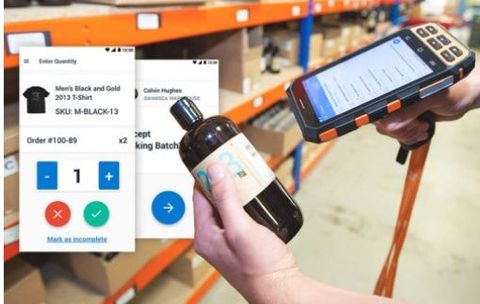Guide to Choosing Marketing Software: Learn the Basics and Key Details
In today's competitive landscape, marketing software has become a cornerstone of success for businesses. These sophisticated tools go beyond simple advertising; they streamline processes, enhance customer experiences, and provide valuable data for informed decision-making. This article explores the numerous benefits of marketing software and equips you with the knowledge to choose the right tool for your needs.
The Efficiency Advantage: Time Saved, Tasks Automated
Marketing software automates repetitive tasks such as email marketing campaigns and social media posting, freeing up valuable time for your team to focus on strategy and creative endeavors. This allows for a more agile approach, enabling you to respond quickly to market changes and capitalize on new opportunities.
Data-Driven Decisions: Insights for Better Targeting and ROI
Marketing software provides comprehensive analytics and reporting capabilities. By tracking website traffic, conversion rates, and customer engagement, you gain valuable insights into campaign performance. This data empowers you to fine-tune your strategies for maximum impact and optimize your return on investment (ROI).
The Power of Personalization: Tailoring the Customer Journey
Modern marketing software leverages customer data to create personalized experiences. This allows you to tailor your messaging to individual preferences, behaviors, and demographics. Such personalization fosters stronger customer relationships and increases the likelihood of conversion.
Enhanced Collaboration: Streamlining Teamwork
Marketing software acts as a central hub, facilitating seamless communication and collaboration within your team. Shared platforms enable real-time updates, report sharing, and centralized project management, ensuring everyone is on the same page and working towards common goals.
The Digital Marketing Revolution: Impact on Execution and Growth
Technology has revolutionized marketing execution. The internet provides access to a global audience, allowing for targeted advertising campaigns across various channels like email, social media, and personalized web experiences. This translates to increased brand exposure and improved visibility among your ideal customers.
Real-Time Engagement: Building Relationships and Loyalty
Digital marketing fosters a more direct and engaging interaction with your audience. Social media platforms, blogs, and other content-sharing channels create a space for two-way communication. By responding to customer queries and addressing concerns in real-time, you build stronger relationships and cultivate brand loyalty.
Adaptability and Flexibility: Keeping Pace with the Digital Age
Digital marketing tools allow for continuous strategy adjustments. You can modify campaigns on the fly to reflect current trends and stay ahead of the competition. This level of flexibility ensures your marketing efforts remain relevant and effective in an ever-evolving digital landscape.
Global Solutions, Local Expertise: Targeting Markets Worldwide
Marketing software applications are available globally, catering to businesses of all sizes and locations. Whether you're in the Bahamas or Spain, you can leverage advanced tools like SMS marketing software for direct communication or video marketing software to create compelling content that resonates with your target audience.
Top Marketing Software Tools to Consider
The vast array of marketing software options can seem overwhelming. Here's a glimpse into some of the leading tools available:
- HubSpot Marketing Hub: Ideal for inbound marketing, CRM integration, and automation.
- Mailchimp: Perfect for email marketing and small businesses.
- Marketo Engage: Best suited for enterprise-level marketing automation.
- Hootsuite: A powerful tool for social media management.
- Semrush: A comprehensive suite for SEO and content marketing.
Choosing the Right Tool for Your Needs
Selecting the optimal marketing software requires careful consideration. Here are some key steps to guide you:
- Define Your Goals: Identify your primary marketing objectives – website traffic growth, lead generation, or customer acquisition. Understanding your desired outcomes will help you choose software with relevant features.
- Analyze Existing Strategies: Identify areas for improvement in your current marketing efforts. This will help determine the type of software needed – email marketing, social media management, or analytics tools.
- Set a Budget: Establish a realistic budget for the software, considering both initial and ongoing costs.
- Research and Compare: Explore various software options, read user reviews, and compare features to find the one that best aligns with your needs and budget.
- Test Drive and Evaluate: Many vendors offer free trials or demos. Take advantage of these opportunities to experience the software firsthand and assess its ease of use and user interface.
- Team Involvement and Support: Ensure everyone on your marketing team understands the chosen software's capabilities and benefits. Utilize available customer support resources for a smooth transition.
- Continuous Evaluation: Regularly assess the effectiveness of your chosen software. Be open to re-evaluating your needs and adapting your choice as your marketing strategy evolves.
Conclusion
Marketing software is no longer a luxury; it's a necessity for businesses seeking to thrive in the digital age.





